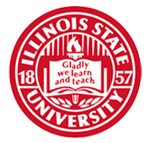Abstract
Undergraduate (n = 19) and graduate students (n = 8) participated in a two semester training program focused on learning about Autism Spectrum Disorder (ASD) and how to create individualized communication supports for families of children with ASD. The focus of this paper is on the graduate students’ training and mentoring experiences. Graduate students’ philosophies of mentoring undergraduate students and their final reflections of the experience were analyzed for themes and subthemes. Mentoring philosophies yielded four major themes: role of the mentor, mentoring goals, the mentor-mentee relationship, and learning. Graduate student reflections on their skills gained, what they learned about themselves, their leadership, and the challenges they faced were also categorized into themes. Analyses revealed undergraduate student ratings and qualitative comments regarding graduate student support. Implications and future directions for the development of hands-on training programs allowing graduate students in Communication Sciences and Disorders to assume mentorship roles will be discussed.
Recommended Citation
Wright, B.,
Kuykendall, K.,
Apsley, J.,
McCullough, N.,
Doerbaum, H.,
Fowler, M.,
Hamm, H.,
Abram, K.,
Taylor, S. O.,
McCarthy, J. W.,
Lee, C.,
&
Benigno, J. P.
(2019).
Graduate Student Reflections on Mentorship in a Training and Outreach Program for Families of Children with Autism Spectrum Disorder.
Teaching and Learning in Communication Sciences & Disorders, 3(1).
DOI: https://doi.org/10.30707/TLCSD3.1Wright




